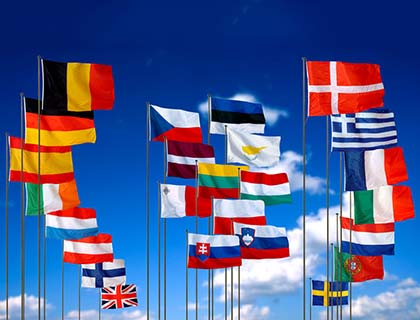Despite all rhetoric, the EU and US are acting in hesitation against Russia. During past years, Russia’s economic relation tightened as it changed into a profitable market for European goods and also major exporter of energy for highly-energy need union.
Considering the issue, Moscow is holding bolder steps in Ukraine which historically was part of the Russia or its power sphere. Following the USSR collapse, Moscow as the main inherit of the Union has felt nostalgic about the past. Mr. President Putin has not feared to express to talk about the glorious history of USSR and Russian leadership. He said that collapse of USSR was a tragic incident in the modern history which somehow reflects his intention to revive his country’s glorious past.
The collapse of Soviet Union and the following appearance of new countries in the eastern part of the Russia and finally getting observed to NATO, the very and only military Union that caused the succumb of East bloc, deeply angered some Moscow leaders and patriotic Russians. Though many claim that elections held in Russia are not fair and transparent, but none can ignore the popularity of Mr. Putin who has increased the self-confidence of his people. As month ago, some TV channels showed people even in Crimea which was annexed to Russia, people waited hour in the long queue to buy shirt marked with the picture of Mr. Putin. No doubt, corresponding to pressure of US and EU, the popularity of Mr. Putin will rise and he will turn into a national hero.
On the other side, US is keen to bring out Ukraine out of Moscow’s power sphere and annex to NATO while Europe is not interested so much because it has large interest in Russia. Germany as the largest economy in EU and also a largest trade partners of the Moscow still has remained reluctant to welcome the stiff and serious policy of Washington. Till now it has preferred to try diplomatic means and avoid encountering its rich in terms of energy economic partner. Certainly, without Germany other EU countries may not able to ratchet up pressure on Russia to a level that it gives up engagement in present battle of East Ukraine.
In its July 10 edition, weekly Der Spiegel carried a cover story audaciously titled: “Germany’s Choice: Will it be America or Russia?” It also featured results of its poll, which showed that 57 per cent of Germans feel their country should become more independent of the US when it comes to foreign policy. In fact, much vitriol has been spilt in the country’s newspapers over the current foreign policy with two of the leading dailies Handelsblatt and Frankfurter Allgemeine (FAZ) engaged in a fierce debate over it. While writers in the FAZ want Germany’s position against Russia to be more strident, Handelsblatt’s columnists like Gabor Steingart have issued a stark warning of the country sleepwalking toward militarism and war. Others believe that Germany’s current diplomatic engagement is not provocative but designed to avert major war and find a solution to the Ukraine crisis.
It is noteworthy that Germany depends heavily on Russia for oil and gas, which caters to a third of its energy needs. Germany also accounts for 31 per cent of all European exports to Russia (amounting to $52.75 billion in 2012). About 6,200 German companies employing 300,000 workers operate in Russia, selling a wide range of products such as machine tools, pharmaceuticals and cars.
Post-sanctions, these exports have suffered an alarming drop with the German national statistics office Destatis estimating 15.5 per cent fall (to the tune of $20.6 billion) in the first half of this year. More notable has been the decline in the German automobile sector, sliding by a mindboggling 24.4 per cent. These German car manufacturers include the likes of Renault, GM and Peugot Citroen. The prospect of Russia imposing a ban on all car imports has caused an even greater scare in EU markets.
As the economy falters, many Germans are criticising the Merkel government for reversing the ‘Ostpolitik’ with Russia that the country has pursued for over four decades. In fact, since the end of the Cold War, has Berlin struck close economic ties with Moscow, as exemplified in the construction of gas pipelines (like the Nord Stream which connects the two countries directly).
It was this growing relationship that spawned anti-Americanism in Germany in the early 2000s. When President George W. Bush declared war on Iraq, then Chancellor Gerhard Schroder vehemently opposed it.
Thereafter, the Bush administration branded France and Germany as ‘Old Europe,’ unlike the more forward-looking eastern European states opposed to Russia. It is believed that even now Schroeder’s Social Democratic Party (currently in opposition) is not supportive of Merkel’s turning the heat on Russia. Recent diplomatic squabbles with the US and Turkey on spying scandals have further strained Germany’s relations with its Nato allies.
There has also been some alarm over the government’s announcement of sending arms to war zones in Iraq. According to pundits, the move constitutes a fundamental break with the country’s old policy of banning weapons supply to crisis-ridden regions. It is charged that the decision requires Bundestag’s mandate.
In sum, the Fatherland would have to fight many of its inner demons before it charts its way forward. Just as Germany’s ontological struggle shaped the course of history in the last century, its current existential issues would influence the future. As the legendary US statesman Henry Kissinger wryly puts it: “Germany is doomed in some way to play an increasingly important role in the world.”

